BIOGRAPHIES
PANELISTS
APRIL 29, 2025
Part I – Europe
Panel I. – European Citizenship, Identity and Values
KEYNOTE SPEECH: Domenec Ruiz Devesa
 Domènec Ruiz Devesa is a lawyer, economist, and political scientist, with an M.A in European Studies from Johns Hopkins University. He is a Spanish politician of the Spanish Socialist Workers' Party (PSOE) who served as a Member of the European Parliament from 2019 until 2024.
Domènec Ruiz Devesa is a lawyer, economist, and political scientist, with an M.A in European Studies from Johns Hopkins University. He is a Spanish politician of the Spanish Socialist Workers' Party (PSOE) who served as a Member of the European Parliament from 2019 until 2024.
Ruiz Devesa started his political career as a economic policy advisor to Jonás Fernández Álvarez, a member of the European Parliament since 2014. Together they co-edited a book on Charlemagne and the European Union.
In 2019, Ruiz Devesa was elected as an MEP, and worked in the Committee on Culture and Education and the Committee on Constitutional Affairs. In 2021 he was appointed as a member of the Parliament's delegation to the Conference on the Future of Europe. In 2022, he was the parliament's rapporteur on a proposal for an overhaul of European election rules that would give all EU citizens aged 18 and older a greater role in choosing the Commission president, allow them to vote for pan-European MEPs and choose postal voting.
In addition to his committee assignments, Ruiz Devesa is a member of the European Parliament Intergroup on Climate Change, Biodiversity and Sustainable Development, the European Parliament Intergroup on LGBT Rights, the European Parliament Intergroup on Trade Unions and the Spinelli Group.
He is currently President of the Union of European Federalists (UEF) and serves on the Executive Board of the Spanish Federal Council of the European Movement.
Maaike Geuens
 Maaike Geuens is currently an Assistant Professor of Public Management, faculty of Management, at the Open University of the Netherlands.
Maaike Geuens is currently an Assistant Professor of Public Management, faculty of Management, at the Open University of the Netherlands.
She obtained her PhD which focused on the European Citizens’ Initiative and its impact on the democratic functioning of the European Union (25th of May 2021). The dissertation departed from a dual approach, it blended political sciences with a legal analysis and encompassed empirical research.
She previously worked at the High Council for Small and Medium-sized Companies (Belgian Federal Government) as a legal counsel and at the Vrije Universiteit Brussel, where she conducted research in European law and Comparative Constitutional Law and she taught Jurisprudence and Comparative Constitutional Law. She was previously a lecturer with the Department of Legal Theory and History of Law and was the coordinator of the Moot Court in the law program at the Vrije Universiteit Amsterdam in 2020-2021. She was an Assistant Professor in Constitutional and Administrative Law at the Public Law and Governance Department of Tilburg Law School (Tilburg University) until 2024.
She is a member of the Government and Law Research Group (University of Antwerp), the Centre for Direct Democracy Studies (University of Bialystok), the European Consortium of Political Research and the University Association for Contemporary European Studies. She was appointed as special national rapporteur by the Congrès Académie Internationale de droit comparé (theme: The crisis of liberal democracy) for 2021-2022 and 2024-2025. She was involved as an expert with the Bertelsmann Foundation, the Democracy Reporting International and the Belgian citizens’ panel organized under the auspices of the Conference on the Future of Europe. Her academic interests include: european policy an institutions, participation, democracy, citizens' Initiatives, governance, qualitative empirical legal methods.
Jean-Christophe Barbato
 Jean-Christophe Barbato is Professor of Public Law at the Sorbonne Law School (University of Paris 1 Panthéon-Sorbonne) specialising in European Union Law and he heads the International and European Law Department of the Sorbonne Law Doctoral School as well as two Masters II. He has been awarded a Jean Monnet Chair devoted to European Union Law and cultural policies. He is a member of the IREDIES laboratory at the Université Paris 1 Panthéon-Sorbonne.
Jean-Christophe Barbato is Professor of Public Law at the Sorbonne Law School (University of Paris 1 Panthéon-Sorbonne) specialising in European Union Law and he heads the International and European Law Department of the Sorbonne Law Doctoral School as well as two Masters II. He has been awarded a Jean Monnet Chair devoted to European Union Law and cultural policies. He is a member of the IREDIES laboratory at the Université Paris 1 Panthéon-Sorbonne.
His academic interests concern: cultural law, education law and fundamental rights, mainly in European Union law. He his the author of numerous books and articles on these subjects. Finally, he is responsible for the culture and education section of the European Union Law Yearbook.
Francesca Salvatore
 Francesca Salvatore is a PhD in Historical, Geographical and International Relations studies at the University of Salento after a bachelor's degree in Political Science and International Relations, a Master's Degree in Geopolitics and a pre-degree specialization at the Euromediterranean School of Law and Politics (ISUFI). Former teaching assistant in History of International Relations at the University of Salento, she teaches US History at “La Scuola Universitaria” (Taranto) and History at Aforisma School of Management (Lecce). She carried out research in Great Britain, the United States and India. Since 2012 she worked as a researcher and EU project manger at the Atlantic-Mediterranean Relations Study Center (CeSRAM): from 2019 she is also the vice-president. She is an ordinary member of several study companies including AIPH / IFPH. From 2018 she is in the scientific board of the International Festival of Public History. She is a journalist registered at the Order of Journalists of Puglia and currently collaborates with many newspapers and magazines.
Francesca Salvatore is a PhD in Historical, Geographical and International Relations studies at the University of Salento after a bachelor's degree in Political Science and International Relations, a Master's Degree in Geopolitics and a pre-degree specialization at the Euromediterranean School of Law and Politics (ISUFI). Former teaching assistant in History of International Relations at the University of Salento, she teaches US History at “La Scuola Universitaria” (Taranto) and History at Aforisma School of Management (Lecce). She carried out research in Great Britain, the United States and India. Since 2012 she worked as a researcher and EU project manger at the Atlantic-Mediterranean Relations Study Center (CeSRAM): from 2019 she is also the vice-president. She is an ordinary member of several study companies including AIPH / IFPH. From 2018 she is in the scientific board of the International Festival of Public History. She is a journalist registered at the Order of Journalists of Puglia and currently collaborates with many newspapers and magazines.
Antonio Caso
 Antonio Caso holds two master's degrees from the University of Bologna, one in Cultural History (2019) and one in Development Geography (2018). He works as a territorial innovation expert and agrifood specialist. Apulian, his expertise lies in sustainability consulting, public history, project management and training in the agrifood sector. He has held various roles, such as project manager for Area Europa and freelance journalist for Gambero Rosso. Over the years, he holds a postgraduate degree in Food Sustainability, Mindful Eating and Healthy Cooking from Stanford University and a Postgraduate Professional Diploma in Environmental Management for Sustainability from the University of Maryland. He works as a freelancer and through his ETS-APS CULTUM with a focus on innovation in agriculture and agribusiness.
Antonio Caso holds two master's degrees from the University of Bologna, one in Cultural History (2019) and one in Development Geography (2018). He works as a territorial innovation expert and agrifood specialist. Apulian, his expertise lies in sustainability consulting, public history, project management and training in the agrifood sector. He has held various roles, such as project manager for Area Europa and freelance journalist for Gambero Rosso. Over the years, he holds a postgraduate degree in Food Sustainability, Mindful Eating and Healthy Cooking from Stanford University and a Postgraduate Professional Diploma in Environmental Management for Sustainability from the University of Maryland. He works as a freelancer and through his ETS-APS CULTUM with a focus on innovation in agriculture and agribusiness.
Bledar Kurti
 Dr. Bledar Kurti has received education and qualifications from Harvard University. USA, Universidad Carlos III de Madrid, Spain, University of Liverpool, England, UK, University of Tirana, Albania and University of Bologna, Italy.
Dr. Bledar Kurti has received education and qualifications from Harvard University. USA, Universidad Carlos III de Madrid, Spain, University of Liverpool, England, UK, University of Tirana, Albania and University of Bologna, Italy.
Dr. Kurti was awarded the title Scholar at the Study of United States Institute for Scholars on American Society and Culture, at New York University, NY, USA. U.S. Department of State, University of Montana, USA, and Scholar at Multinational Institute of American Studies, Steinhardt School of Culture, Education and Human Development, New York University, NY, USA.
He has obtained a PhD in International Relations and History. He is a certified expert in Quality Assurance Agency of Higher Education, a published author of ten books and hundreds of studies, academic articles and comentaries on the national and international newspapers.
He is the Director, Directorate of Projects and Foreign Relations, “A. Moisiu” University, Durres, Albania, a lecturer of several study programs for 18 years and has served as the Advisor to the President of the Republic of Albania, Advisor to the Minister of Health, Advisor to the Minister of Environment, Adevsor to several Mayors and Members of Parliament.
Fabienne Péraldi Leneuf
Esra Akgemci
Esra Akgemci is an associate professor in the Department of International Relations at Selçuk University in Turkey. She completed her undergraduate studies in Economics at Hacettepe University and earned her master’s and doctoral degrees in International Relations from the Faculty of Political Sciences at Ankara University. She conducted postgraduate research as a visiting scholar at the University of Florida’s Center for Latin American Studies in the USA, Universidad Nacional Autónoma de México (UNAM) in Mexico, Universidade Federal Fluminense (UFF) in Brazil, and the UN Economic Commission for Latin America and the Caribbean (CEPAL) in Chile. She co-edited the leading Turkish book on Latin American studies, “Latin America: The Opposite Corner of the World: History, Society, Culture” (İletişim, 2020). She has published several articles on Latin American politics, focusing on authoritarian populism, post-neoliberalism, new extractivism, the pink tide, social movements, and feminist foreign policies. Additionally, she writes a column on the politics and culture of Latin America for T24, one of Turkey’s top online news channels.
Sara Poli
 Sara Poli is full professor of EU law at the University of Pisa (Italy), Department of Political Science where she teaches EU law and the Law of EU external relations. She is also visiting professor at LUISS since 2024 and she has been visiting professor at the European University Institute, law department (2023). She has worked in the field of EU law since 1996. She has been a member of the Jean Monnet networks EUDIPLO on EU diplomacy and EUCTER on EU counterterrorism (2020-2024). She has held a Jean Monnet Chair (2013-2016). She has worked for Universities of Rome ‘Tor Vergata’, Trieste and Southampton (UK). She has carried out research with the support of the DAAD short term fellowship, Robert Schuman fellowship (EUI), the Marie Curie fellowship (EUI), the Fulbright-Schuman fellowship and the Belgian ‘Vlac fellowship’. She has been teaching assistant in the Department of European Legal Studies of the College of Europe (Bruges). She did her PhD studies at the Scuola Superiore S. Anna (Pisa) and she graduated from the University of Pisa. She has published in well known foreign and Italian legal Journals on various areas of EU law, including the law of the EU external relations.
Sara Poli is full professor of EU law at the University of Pisa (Italy), Department of Political Science where she teaches EU law and the Law of EU external relations. She is also visiting professor at LUISS since 2024 and she has been visiting professor at the European University Institute, law department (2023). She has worked in the field of EU law since 1996. She has been a member of the Jean Monnet networks EUDIPLO on EU diplomacy and EUCTER on EU counterterrorism (2020-2024). She has held a Jean Monnet Chair (2013-2016). She has worked for Universities of Rome ‘Tor Vergata’, Trieste and Southampton (UK). She has carried out research with the support of the DAAD short term fellowship, Robert Schuman fellowship (EUI), the Marie Curie fellowship (EUI), the Fulbright-Schuman fellowship and the Belgian ‘Vlac fellowship’. She has been teaching assistant in the Department of European Legal Studies of the College of Europe (Bruges). She did her PhD studies at the Scuola Superiore S. Anna (Pisa) and she graduated from the University of Pisa. She has published in well known foreign and Italian legal Journals on various areas of EU law, including the law of the EU external relations.
Panel II. – The European Union in a Changing World
EXPERT SPEECH: Antonio Parenti
 Antonio Parenti is currently the Director for Public Health, Cancer and Human Security in the Directorate General for Human and Food Security of the European Commission.
Antonio Parenti is currently the Director for Public Health, Cancer and Human Security in the Directorate General for Human and Food Security of the European Commission.
Until August 2024 he was the Head of the European Commission Representation in Italy. He represented the Commission in Italy under the political authority of President Ursula von der Leyen and oversaw the two offices of Rome and Milan.
Before Italy, he was the Minister Counsellor in charge of the economic affairs, trade and development section of the EU Delegation to the United Nations. In that capacity, he served as Chief negotiator of the European Union for the UN Global Compact on Migration. Much of his career took place in the European Commission's Directorate-General for Trade where he served as Deputy Chief negotiator of the free trade agreement with Japan, responsible for relations with the countries of the Far East including the China and Chief negotiator for the accession of several countries to the WTO. He served not only in Brussels and New York but also in Moscow where he served as the Counsellor for economic and commercial affairs of the EU Delegation during the final stages of Russia's accession negotiations to the WTO.
Antonio Parenti has a Law Degree and a LL.M in European Law from the University of Bologna and a Master of Arts in International Relations from the Paul H. Nitze School of Advanced International Studies (Johns Hopkins University). He is the author of numerous articles and essays on European affairs and international trade.
Ana Bojinović Fenko
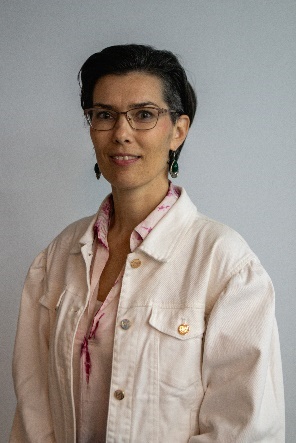 Ana Bojinović Fenko is a professor of IR at the University of Ljubljana at the Faculty of Social Sciences, and teaches at all three university levels in the fields of IR and European Studies. Her areas of research are: foreign policy analysis (specifically small states, post-Yugoslav space); regionalism (particularly the Balkans and the Mediterranean); and the EU’s external action (especially EU enlargement policy).
Ana Bojinović Fenko is a professor of IR at the University of Ljubljana at the Faculty of Social Sciences, and teaches at all three university levels in the fields of IR and European Studies. Her areas of research are: foreign policy analysis (specifically small states, post-Yugoslav space); regionalism (particularly the Balkans and the Mediterranean); and the EU’s external action (especially EU enlargement policy).
Julija Brsakoska Bazerkoska
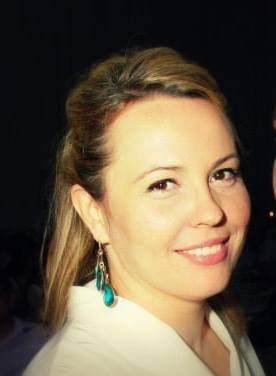 Julija Brsakoska Bazerkoska, Ph.D. is a professor at Ss. Cyril and Methodius University, Law Faculty in Skopje, Republic of North Macedonia, where she teaches International Relations, EU External Relations and Multilateral Diplomacy. Her research interests are in EU external Action, with focus on EU membership in international organizations and EU enlargement policy.
Julija Brsakoska Bazerkoska, Ph.D. is a professor at Ss. Cyril and Methodius University, Law Faculty in Skopje, Republic of North Macedonia, where she teaches International Relations, EU External Relations and Multilateral Diplomacy. Her research interests are in EU external Action, with focus on EU membership in international organizations and EU enlargement policy.
Ingrid Kiessling R.
 Ingrid Kiessling is a lawyer with a Master’s degree in International Law, Trade, and Arbitration from the University of Heidelberg and the University of Chile. She also holds postgraduate degrees in Foreign Policy, Trade, and Diplomacy, as well as in Public Economic Law, both from the same university. Additionally, she has postgraduate studies in Litigation and New Procedures. Ingrid has a diploma in Egyptology and Ancient Near Eastern Studies. She is currently a candidate for a Master’s degree in International Studies at the Institute of International Studies at the University of Chile.
Ingrid Kiessling is a lawyer with a Master’s degree in International Law, Trade, and Arbitration from the University of Heidelberg and the University of Chile. She also holds postgraduate degrees in Foreign Policy, Trade, and Diplomacy, as well as in Public Economic Law, both from the same university. Additionally, she has postgraduate studies in Litigation and New Procedures. Ingrid has a diploma in Egyptology and Ancient Near Eastern Studies. She is currently a candidate for a Master’s degree in International Studies at the Institute of International Studies at the University of Chile.
Throughout her career, Ingrid has worked in various public and private institutions, notably serving as a lawyer at the Council of Defense of the State, the Ministry of Labor of Chile, and the National Petroleum Company of Chile (ENAP). She has also gained extensive experience in government affairs management, having worked as the Public Affairs Manager for Chile at the multinational corporation Corteva, a major American company.
In the academic field, Ingrid is currently the Director of the Law School at the Universidad Gabriela Mistral, and has distinguished herself as a lecturer in Public International Law and International Labor Law.
Eirikur Bergmann
 Dr. Eirikur Bergmann is a Professor of Politics at Bifröst University in Iceland. Author of twelve academic books and numerous journal articles, he writes mainly on Nationalism, Populism, Conspiracy Theories, European Integration, Icelandic Politics and Participatory Democracy. Bergmann is also the author of three novels published in Icelandic. Many of these publications are found here: Full Curriculum Vitae (.pdf file)
Dr. Eirikur Bergmann is a Professor of Politics at Bifröst University in Iceland. Author of twelve academic books and numerous journal articles, he writes mainly on Nationalism, Populism, Conspiracy Theories, European Integration, Icelandic Politics and Participatory Democracy. Bergmann is also the author of three novels published in Icelandic. Many of these publications are found here: Full Curriculum Vitae (.pdf file)
Mohamed Shokry
Mohamed Shokry is a legal expert and judicial officer in the fields of governance, democracy, human rights and migration policy. He is currently a Criminal Court Judge in Egypt and is also a PhD candidate in Law at the University of Salento in Italy, whose research interests lie in the area of gender equality and legal reforms with reference to Egyptian and Italian legal systems. Shokry has gained over 15 years of experience in the judiciary, including being a prosecutor and a family court judge. Shokry has real life experience of the rule of law and civil rights being been trained in conflict management, humanitarian action and comparative law at European institutions. Shokry has been involved in policy debates on European migration and citizenship, and has provided pro bono legal advice to migrants and refugees, and has investigated irregular migration between North Africa and Europe in his research. He has written and presented papers on topics such as workplace harassment legislation in the EU and application of international humanitarian law in cyber warfare. Shokry contributes to the dialogue on democracy, migration and global challenges by participating in academic exchanges and international forums, including seminars on human rights and participating in global legal initiatives.
Oleksiy Kandyuk
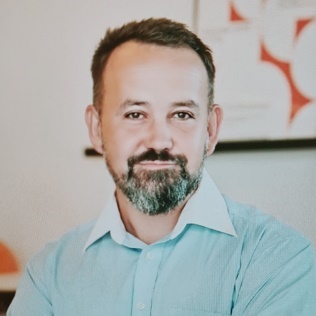 Oleksiy Kandyuk is the European Integration researcher with more than 20 years of expertise as an academic, political expert and policy adviser.
Oleksiy Kandyuk is the European Integration researcher with more than 20 years of expertise as an academic, political expert and policy adviser.
He began his academic career at Yuriy Fedkovych Chernivtsi National University but also lectured at the University of Lodz and Wisconsin International University.
Prof. Kandyuk is invited DFG researcher at University of Konstanz. He was a Research Fellow at HIAS - Hamburg Institute for Advanced Study, visiting researcher at L’Universite Libre de Bruxelles, University of Padova and Gran Sasso Science Institute. He also was Special Fellow to SCRIPTS Cluster of Excellence at Frei University, Berlin and non-residential Fellow at University of Indiana.
Apart from academic activities, many projects were implemented in the NGO framework. The non-governmental organizations he managed and collaborated with were mainly engaged in research and development of projects in the field of public policy, national security, and social transformations. They also provided scientific, expert, and research assistance to state and local governments, international organizations, NGOs, and academic institutions; and facilitated cooperation between governmental and non-governmental organizations.
As a founder and director of the EU Neighborhood and Association Initiative, he coordinated information, analytical and expert activities on Ukraine's integration into the European Union and NATO, as well as scientific and sociological research in the field of European integration.
He was responsible for the development and presentation of proposals to accelerate and deepen Ukraine's European integration at the level of state authorities, local self-government and non-governmental organizations. He promoted closer cooperation with neighboring countries, international organizations, foreign institutions and experts on key issues of European integration and the creation of joint research groups, exchange of scientific results, publications, as well as cross-border cooperation between experts from neighboring countries and EU member states.
Prof. Kandyuk is the author of more than 50 scientific works in the field of European Studies, International and domestic policy of Ukraine.
For more than 10 years he has been actively contributing as observer and columnist as well as political expert to local and national mass media.
Catherine Vielledent
 Catherine Vieilledent is a former EU official (European Commission 1996-2021), currently independent expert in European affairs specialized in issues regarding the budget, EU own resources, rule of law, EU citizenship and participatory democracy, institutional matters.
Catherine Vieilledent is a former EU official (European Commission 1996-2021), currently independent expert in European affairs specialized in issues regarding the budget, EU own resources, rule of law, EU citizenship and participatory democracy, institutional matters.
Member of the European Commission’s Team Europe Direct network of independent experts and speakers.
She is an alumna of the Ecole normale supérieure Fontenay (1976-1981), and the Ecole Nationale d’administration (1991-1993). Former senior lecturer at the Montpellier university and Jussieu Paris university (1981-1990).
EXPERT SPEECH: Maria D’Aprile & Co
APRIL 30, 2025
Part II – World
Panel III. – Values and Tools for a New World Order
KEYNOTE SPEECH: Jan Wouters
 Jan Wouters is Full Professor of International Law and International Organizations, Jean Monnet Chair ad personam EU and Global Governance, and founding Director of the Institute for International Law and of the Leuven Centre for Global Governance Studies, an interdisciplinary research centre with the status of both a Jean Monnet and KU Leuven Centre of Excellence, at KU Leuven. He is also Administrator of the America Europe Fund. He studied law and philosophy at Antwerp University, obtained an LL.M. at Yale University and was Visiting Researcher at Harvard University. As Visiting Professor at Paris-II (Panthéon-Assas, Paris) and the College of Europe (Bruges) he teaches EU external relations law. Prof. Wouters is a Member of the Royal Academy of Belgium for Sciences and Arts and practises law as Of Counsel at Omega Law, Antwerp. He is Editor of the International Encyclopedia of Intergovernmental Organizations, Deputy Director of the Revue Belge de Droit International, and an editorial board member in eleven international journals. He has published widely on international and EU law, international organizations, global governance, and corporate and financial law, including 80 books and more than 150 journal articles and 260 chapters in international books. His most recent books include China, the EU and the Developing World (2015), Global Governance of Labour Rights (2015), Global Governance Through Trade (2015), The Contribution of International and Supranational Courts to the Rule of Law (2015), Global Governance and Democracy (2015), Armed Conflicts and the Law (2016), Judicial Decisions on the Law of International Organizations (2016), Internationaal Recht in Kort Bestek (2nd ed. 2017), Research Handbook on EU Energy Law and Policy (2017), Commercial Uses of Space and Space Tourism (2017), The Commons and a New Global Governance (2018), EU Human Rights and Democratization Policies (2018), International Law: a European Perspective (2018), The G7, Anti-Globalism and the Governance of Globalization (2018), The Faces of Human Rights (2019), Changing Borders in Europe (2019), General Principles of Law and the Coherence of International Law (2019), Parliamentary Cooperation and Diplomacy in EU External Relations (2019), The Belt and Road Initiative and Global Governance (2020), Assessing the 2019 European Parliament Elections (2020), The Law of EU External Relations (3nd ed. 2021), The European Union and Human Rights: Law and Policy (2020), Rule of Law and Areas of Limited Statehood (2021), The European Union and Human Rights: Analysis, Cases and Materials (2021), Japan, the European Union and Global Governance (2021), EU Industrial Policy in the Multipolar Economy (2022), The G20, Development and the UN 2030 Agenda (2022), Research Handbook on Global Governance, Business and Human Rights (2022), The Nexus Between Organized Crime and Terrorism (2022), Contestation and Polarization in Global Governance (2023), Legal Advisers in International Organizations (2023) and National Human Rights Institutions in Europe and Latin America (2024). He recently coordinated two large European research projects, FRAME (“Fostering Human Rights Among European External and Internal Policies”, 2013-17) and RECONNECT (“Reconnecting Europe with its Citizens through Democracy and Rule of Law”, 2018-22) and coordinates a six-year multidisciplinary research programme CONNECTIVITY (“Connectivity, Contestation and Cooperation in Global Governance”), funded by KU Leuven. Apart from his participation in international scientific networks, he advises international organizations and governments, trains international officials and is often asked to comment international events in the media. In 2023 he was awarded the Serge Lazareff Prize for Excellence in Legal Services.
Jan Wouters is Full Professor of International Law and International Organizations, Jean Monnet Chair ad personam EU and Global Governance, and founding Director of the Institute for International Law and of the Leuven Centre for Global Governance Studies, an interdisciplinary research centre with the status of both a Jean Monnet and KU Leuven Centre of Excellence, at KU Leuven. He is also Administrator of the America Europe Fund. He studied law and philosophy at Antwerp University, obtained an LL.M. at Yale University and was Visiting Researcher at Harvard University. As Visiting Professor at Paris-II (Panthéon-Assas, Paris) and the College of Europe (Bruges) he teaches EU external relations law. Prof. Wouters is a Member of the Royal Academy of Belgium for Sciences and Arts and practises law as Of Counsel at Omega Law, Antwerp. He is Editor of the International Encyclopedia of Intergovernmental Organizations, Deputy Director of the Revue Belge de Droit International, and an editorial board member in eleven international journals. He has published widely on international and EU law, international organizations, global governance, and corporate and financial law, including 80 books and more than 150 journal articles and 260 chapters in international books. His most recent books include China, the EU and the Developing World (2015), Global Governance of Labour Rights (2015), Global Governance Through Trade (2015), The Contribution of International and Supranational Courts to the Rule of Law (2015), Global Governance and Democracy (2015), Armed Conflicts and the Law (2016), Judicial Decisions on the Law of International Organizations (2016), Internationaal Recht in Kort Bestek (2nd ed. 2017), Research Handbook on EU Energy Law and Policy (2017), Commercial Uses of Space and Space Tourism (2017), The Commons and a New Global Governance (2018), EU Human Rights and Democratization Policies (2018), International Law: a European Perspective (2018), The G7, Anti-Globalism and the Governance of Globalization (2018), The Faces of Human Rights (2019), Changing Borders in Europe (2019), General Principles of Law and the Coherence of International Law (2019), Parliamentary Cooperation and Diplomacy in EU External Relations (2019), The Belt and Road Initiative and Global Governance (2020), Assessing the 2019 European Parliament Elections (2020), The Law of EU External Relations (3nd ed. 2021), The European Union and Human Rights: Law and Policy (2020), Rule of Law and Areas of Limited Statehood (2021), The European Union and Human Rights: Analysis, Cases and Materials (2021), Japan, the European Union and Global Governance (2021), EU Industrial Policy in the Multipolar Economy (2022), The G20, Development and the UN 2030 Agenda (2022), Research Handbook on Global Governance, Business and Human Rights (2022), The Nexus Between Organized Crime and Terrorism (2022), Contestation and Polarization in Global Governance (2023), Legal Advisers in International Organizations (2023) and National Human Rights Institutions in Europe and Latin America (2024). He recently coordinated two large European research projects, FRAME (“Fostering Human Rights Among European External and Internal Policies”, 2013-17) and RECONNECT (“Reconnecting Europe with its Citizens through Democracy and Rule of Law”, 2018-22) and coordinates a six-year multidisciplinary research programme CONNECTIVITY (“Connectivity, Contestation and Cooperation in Global Governance”), funded by KU Leuven. Apart from his participation in international scientific networks, he advises international organizations and governments, trains international officials and is often asked to comment international events in the media. In 2023 he was awarded the Serge Lazareff Prize for Excellence in Legal Services.
Jeffrey Glausiusz
Jeffrey Glausiusz was born in London, England in 1961. When he was young, he lived in Hounslow, near Heathrow airport, where he remember the planes flying frequently overhead. This might have given him some interest in technology. He had some aptitude for scientific subjects in school and did end up getting a degree BSc in Physics at the University of London. He has also, for as long as he remembers, had a keen interest in wider societal and political issues. This likely had some connection to his families and in particular his parent’s personal history. Their lives, especially his fathers were severely impacted by events during the second world War. He has read widely on political and philosophical issues, moreover, he will also mention the writings of Eric de Bono on the subject of lateral and innovative thinking. He moved to Israel in 1985 and have been living here since. He has found employment in the field of programming of computers and robots for industrial applications. For the last 18 years he has been independent with his own company specializing in software for industrial applications. He started writing a blog Pax Orbis www.pax-orbis.org about seven years ago, basically, encapsulating his ideas on the methods to achieve peace and environmental sustainability. He has been active in the field of environmental advocacy in Israel for the last six years or so. In particular, with respect to the climate crisis, he participated in an official delegation from Israel to Germany about two years ago to learn from their efforts to reduce emissions. He is in the process of writing a book on the ways to resolve the climate crisis. He thinks that his varied experiences have given him a greater understanding of these issues than is commonly found.
Brian T. Schmitt
 Brian T. Schmitt is an associate professor at the Faculty of International and Intercultural Studies where he teaches in the Master's program Languages & International Trade. He is the lead professor for the EUTOPIA University’s Learning Community Social Power & Social change and an active participant in its Connected Community Maintaining International Peace and Security lead by the Department of International Relations at the University of Ljubljana. His research interests include the social power and agency, the role of think tanks in policy formation, and the intersection between economic, political, and ideological power. Before emigrating to France in 2005, he worked for five years as Director of Research at the Community Development Venture Capital Alliance in New York City and for two years at the Center for Social and Community Development in New Jersey. He holds
Brian T. Schmitt is an associate professor at the Faculty of International and Intercultural Studies where he teaches in the Master's program Languages & International Trade. He is the lead professor for the EUTOPIA University’s Learning Community Social Power & Social change and an active participant in its Connected Community Maintaining International Peace and Security lead by the Department of International Relations at the University of Ljubljana. His research interests include the social power and agency, the role of think tanks in policy formation, and the intersection between economic, political, and ideological power. Before emigrating to France in 2005, he worked for five years as Director of Research at the Community Development Venture Capital Alliance in New York City and for two years at the Center for Social and Community Development in New Jersey. He holds
a PhD in urban planning and public policy and master’s degree in city and regional planning both from Rutgers University’s Bloustein School of Planning and Public Policy in New Jersey.
Wolfgang Pape
 Dr Wolfgang Pape is currently a free writer, lecturer and lawyer living in the capital of Europe after Fellowships in Seoul and Taipei as well as his recent engagement for the Bandung Non-Alignment Movement. During his service in the European Commission over 30 years, including altogether ten years of postings as an EU diplomat in Tokyo, he was in Bruxelles in charge of the ‘Asia Strategy’ and contributed to the ‘White Paper on Governance’ with the Think Tank of the late EC President Jacques Delors, following a Fellowship at the Brookings Institution in Washington DC.
Dr Wolfgang Pape is currently a free writer, lecturer and lawyer living in the capital of Europe after Fellowships in Seoul and Taipei as well as his recent engagement for the Bandung Non-Alignment Movement. During his service in the European Commission over 30 years, including altogether ten years of postings as an EU diplomat in Tokyo, he was in Bruxelles in charge of the ‘Asia Strategy’ and contributed to the ‘White Paper on Governance’ with the Think Tank of the late EC President Jacques Delors, following a Fellowship at the Brookings Institution in Washington DC.
He studied law and economics at the universities of Marburg (D) and Genève (CH), researched during two years at Osaka Gaidai (J) and Kyoto University (J) as well as subsequently at Harvard (USA) for his Dr iuris in Freiburg (D) in 1981. Before joining the EU as a lawyer, he served as an Advisor at the Japanese Embassy in Bonn.
His lectures and publications in English, German, Japanese and French are ranging from worldwide cultural diversity to trade issues and inclusive global governance, for which he coined the term “Omnilateralism 全边主义 ”, inspiring the title of his latest book (ISBN 978-1-6655-8213-1).
Luca Belgiorno-Nettis
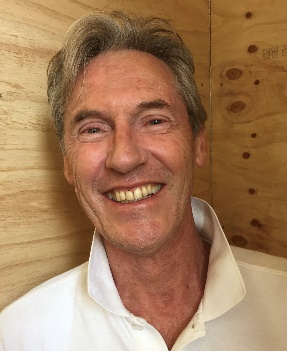 Luca Belgiorno-Nettis is Managing Director of Transfield Holdings, and Prisma Investment – a private family office – based in Sydney, Australia. He was the Chairman of the Biennale of Sydney from 2000 to 2014. In 2004 he was made a Member of the Order of Australia for service to the arts and to the community. In 2007 – together with Kathy Jones and Lyn Carson – he founded The newDemocracy Foundation (NDF) a not-for-profit organisation focused on political reform.
Luca Belgiorno-Nettis is Managing Director of Transfield Holdings, and Prisma Investment – a private family office – based in Sydney, Australia. He was the Chairman of the Biennale of Sydney from 2000 to 2014. In 2004 he was made a Member of the Order of Australia for service to the arts and to the community. In 2007 – together with Kathy Jones and Lyn Carson – he founded The newDemocracy Foundation (NDF) a not-for-profit organisation focused on political reform.
NDF has overseen more than 30 citizens’ juries/assemblies in Australia. The United Nations Democracy Fund (UNDEF) commissioned nDF in 2017 to undertake citizens’ juries in Malawi, Brazil and North Macedonia. The following year, nDF was part of an advisory team consulting on the world’s first permanent Citizens’ Council in Belgium. In the same year, NDF established Democracy R&D: a global network of academics and practitioners with 200 members across 5 continents. NDF was also a founding partner for FIDE – Federation for Innovation in Democracy Europe – a resource for expert advice on deliberative democracy. The City of Paris approached FIDE in 2020 to act as their principal adviser for a permanent Citizens’ Council, which is now operational.
Luca holds a Bachelor of Architecture from the University of New South Wales, and a Graduate Diploma in Urban Estate Management from the University of Technology. In 2014 Luca was awarded an Honorary Doctorate of Letters by Western Sydney University.
INSPIRATIONAL TALK: Joe Weston
 Joe Weston is an international trainer, author, lecturer, consultant, coach, professor, and—above all else—an for lasting peace. With a career spanning 30+ years in the fields of conflict prevention, leadership, stress management, and communication, he is a highly sought-after facilitator for individuals, as well as corporations, government agencies and nonprofits around the world. Born in Queens, New York, and raised in a volatile environment where problems were often resolved with arguments and fights, Joe was determined to deeply understand the roots of conflict and find another way to safely address it. This led him on a lifelong quest around the world, exploring and studying diverse traditions– particularly various forms of martial arts, meditation and contemplative practices, neuroscience, and training that combines theory with somatic exercises. While living in the Netherlands for 18 years, Joe had an opportunity to expand his vision of human solidarity that transcends borders, nationality, race, religion, political ideology and economic status. This led to the creation of programs in the US, Europe, and some of the most conflict-ridden regions of the world. As founder and owner of the Weston Network based in Washington, D.C., Joe and his international team provide training, consulting and coaching based on his methodology, called Respectful Confrontation®. Through a network of 30+ certified trainers, and even more allies and collaborators in the United States, Europe and the Middle East, people from all walks of life have greatly benefited from Joe’s highly effective methodology—from corporate innovators and entrepreneurs, government agencies, INGOs, educators, healthcare workers, parents and young adults. Joe has served as an adjunct professor at Georgetown University’s Department of Government, Program of Conflict Resolution. A sampling of Joe’s past and present clients: NASA, World Bank, Oxfam, Booz Allen Hamilton, PBS, Dutch Ministry of Foreign Affairs, KLM, The National Cancer Institute, The National Health Institute, The United Nations, Mitsubishi Motors. In 2020, Joe founded the Fierce Civility Project, a nonprofit that further carries out the Weston Network’s programs and message across all sectors by helping others reclaim and reframe of concept of civility for the 21st century, activate deeper levels of civic engagement and respectful civil discourse, and break the gridlock caused by extreme polarization. Joe’s work with women’s rights and other humanitarian organizations in the Middle East and United States focuses on empowerment and leadership. He has also worked with various veterans’ organizations in processes of integration and healing, as was a volunteer facilitator for the Liberation Prison Project, teaching meditation and leadership to inmates.
Joe Weston is an international trainer, author, lecturer, consultant, coach, professor, and—above all else—an for lasting peace. With a career spanning 30+ years in the fields of conflict prevention, leadership, stress management, and communication, he is a highly sought-after facilitator for individuals, as well as corporations, government agencies and nonprofits around the world. Born in Queens, New York, and raised in a volatile environment where problems were often resolved with arguments and fights, Joe was determined to deeply understand the roots of conflict and find another way to safely address it. This led him on a lifelong quest around the world, exploring and studying diverse traditions– particularly various forms of martial arts, meditation and contemplative practices, neuroscience, and training that combines theory with somatic exercises. While living in the Netherlands for 18 years, Joe had an opportunity to expand his vision of human solidarity that transcends borders, nationality, race, religion, political ideology and economic status. This led to the creation of programs in the US, Europe, and some of the most conflict-ridden regions of the world. As founder and owner of the Weston Network based in Washington, D.C., Joe and his international team provide training, consulting and coaching based on his methodology, called Respectful Confrontation®. Through a network of 30+ certified trainers, and even more allies and collaborators in the United States, Europe and the Middle East, people from all walks of life have greatly benefited from Joe’s highly effective methodology—from corporate innovators and entrepreneurs, government agencies, INGOs, educators, healthcare workers, parents and young adults. Joe has served as an adjunct professor at Georgetown University’s Department of Government, Program of Conflict Resolution. A sampling of Joe’s past and present clients: NASA, World Bank, Oxfam, Booz Allen Hamilton, PBS, Dutch Ministry of Foreign Affairs, KLM, The National Cancer Institute, The National Health Institute, The United Nations, Mitsubishi Motors. In 2020, Joe founded the Fierce Civility Project, a nonprofit that further carries out the Weston Network’s programs and message across all sectors by helping others reclaim and reframe of concept of civility for the 21st century, activate deeper levels of civic engagement and respectful civil discourse, and break the gridlock caused by extreme polarization. Joe’s work with women’s rights and other humanitarian organizations in the Middle East and United States focuses on empowerment and leadership. He has also worked with various veterans’ organizations in processes of integration and healing, as was a volunteer facilitator for the Liberation Prison Project, teaching meditation and leadership to inmates.
Panel IV – A World in Transition
Sérgio Barbosa
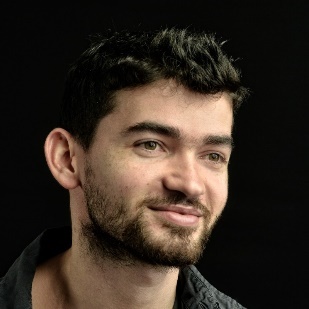 Sérgio Barbosa (University of Coimbra, PhD) is a digital sociologist focusing on digital literacy and AI. He is a postdoctoral researcher at University of Geneva linked to the Institute of Citizenship Studies (InCite). He is also a visiting researcher at BANDAS-center, University of Graz. Barbosa served as a research fellow at four international research institutions, namely: Center for Advanced Studies (CAS), Institute for Human Sciences (IWM), Institute for Advanced Studies on Science, Technology and Society (IAS-STS), and Center for Advanced Internet Studies (CAIS). His research interests include AI, Digital Literacy, and Global South. His work has been published in leading academic outlets such as the Political Studies Review, Mobile Media & Communication, Westminster Papers in Communication and Culture, and First Monday, among others. In his PhD thesis at the University of Coimbra, Barbosa investigated the everyday political life of WhatsAppers through five distinct communicative repertoires: (1) Information Sharing: diffusion of news ignored by mainstream media; (2) Networks of Solidarity: based on common interests and, values and collective ideas among group participants; (3) Interpersonal Trust: interpersonal dialogue and trust between group members; (4) On the ground Mobilization: calls to action that started through online chat and culminated with face-to-face activities; (5) Pipeline: connections to other social media platforms and WhatsApp groups, including offsprings of the “mother group,” to engage in specific activities. His recent work delves into AI literacies as pedagogical strategy. It develops participatory approaches focusing on the agency of young people to play a multi-disciplinary role for social change at the school level, while creating pedagogical toolboxes in a meaningful, inclusive and mutually beneficial way as a response to global challenges.
Sérgio Barbosa (University of Coimbra, PhD) is a digital sociologist focusing on digital literacy and AI. He is a postdoctoral researcher at University of Geneva linked to the Institute of Citizenship Studies (InCite). He is also a visiting researcher at BANDAS-center, University of Graz. Barbosa served as a research fellow at four international research institutions, namely: Center for Advanced Studies (CAS), Institute for Human Sciences (IWM), Institute for Advanced Studies on Science, Technology and Society (IAS-STS), and Center for Advanced Internet Studies (CAIS). His research interests include AI, Digital Literacy, and Global South. His work has been published in leading academic outlets such as the Political Studies Review, Mobile Media & Communication, Westminster Papers in Communication and Culture, and First Monday, among others. In his PhD thesis at the University of Coimbra, Barbosa investigated the everyday political life of WhatsAppers through five distinct communicative repertoires: (1) Information Sharing: diffusion of news ignored by mainstream media; (2) Networks of Solidarity: based on common interests and, values and collective ideas among group participants; (3) Interpersonal Trust: interpersonal dialogue and trust between group members; (4) On the ground Mobilization: calls to action that started through online chat and culminated with face-to-face activities; (5) Pipeline: connections to other social media platforms and WhatsApp groups, including offsprings of the “mother group,” to engage in specific activities. His recent work delves into AI literacies as pedagogical strategy. It develops participatory approaches focusing on the agency of young people to play a multi-disciplinary role for social change at the school level, while creating pedagogical toolboxes in a meaningful, inclusive and mutually beneficial way as a response to global challenges.
Troy Davis
Troy Davis is a polyglot and polymath, longtime advocate of world citizenship and world democracy (author of Appel pour une démocratie mondiale, DDB, Paris, 1998). His father Garry Davis, known as “World Citizen n°1”, was the founder of the world citizenship movement in the 20th century. Troy has headed the World Citizen Foundation, which his father created, since 1998. He was born in Strasbourg, Alsace, France, the world capital of supranational democracy and human rights (seat of the European Parliament and the European Court of Human Rights), and also the unfortunate locus of war for two millennia. Troy was educated at the Washington International School and at Harvard (Major in theoretical physics, with additional courses in Sumerian, evolutionary biology, neuroscience, history..). His childhood motivation, apart from the influence of his parents (his mother, a pacifist and feminist, was a co-founder of the Greens in France and Europe), comes from science-fiction, and the desire to travel among the stars. His reasoning that space travel could only become widespread and democratized enough if we had world peace was the impetus for his innovative work. As a scientist, mistrusting cognitive biases so common in politics, he decided to develop a general method to resolve political problems, based on sound principles, and a clear methodology, which was called for ‘marketing’ reasons, democracy engineering. It was developed using Einstein’s method of Gedankenexperimente, but using extensive knowledge of psychology, anthropology, world history, conflict resolution theory etc. His big project is to create the world’s first School of democracy engineering in Strasbourg, to train democracy engineers from all over the world (at Masters level). Current projects include Pax democratica: democratic peace assembly for Israel-Palestine; the World Carbon Community (to help States implement COP decisions); and the Strasbourg Process: creating a democratic government in exile for Afghanistan.
Stefania Attolini
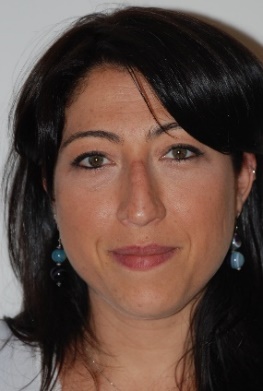 Stefania Attolini is the Director of the University Diploma on Environmental Law and lecturer of European Union law at the Catholic University of Lyon. She is a qualified Italian lawyer.She holds a Ph.D. in European Union Law (2020) from University of Salento with a thesis on the right to access to the Internet in the European Union and the European code for electronic communications.
Stefania Attolini is the Director of the University Diploma on Environmental Law and lecturer of European Union law at the Catholic University of Lyon. She is a qualified Italian lawyer.She holds a Ph.D. in European Union Law (2020) from University of Salento with a thesis on the right to access to the Internet in the European Union and the European code for electronic communications.
In 2015, she successfully completed the advanced master in European Union law at the Institute of European Studies of the ULB (Université Libre de Bruxelles).
She has been a Blue Book trainee at the European Commission, working at the Consumer Strategy, Representation & International Relations Unit of the former DG Sanco, now incorporated into the DG Justice and consumers.
As a researcher, she has been involved in several projects concerning digital technologies and democracy, data governance as well as the protection of vulnerable people and their right to access to essential services.
Nadia Perrone
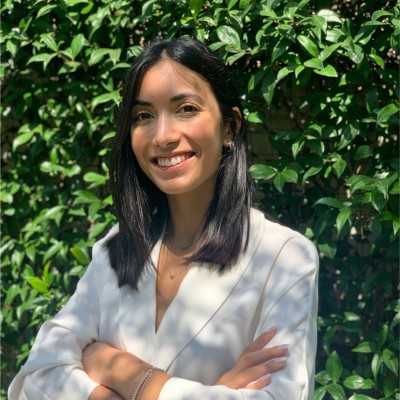 Nadia Perrone is a PhD candidate in “Law and Sustainability” at the University of Salento and teaching assistant in International Law at the same University. Previously, she holds a degree in law with honours from the University of Salento and a degree of School of Advanced Studied ISUFI. In 2022, she obtained the license to practice as a lawyer. Recently, she spent a period as a visiting research fellow at “T.M.C. Asser Instituut” (Netherlands) and at the “Geneva Academy of International Humanitarian Law and Human Rights” (Switzerland). From January 2025, Nadia has a new role as an ethical and legal research advisor for “Engineering Ingegneria Informatica”. She provides assistance for ethical and legal issues possibly linked to the development of new digital technologies and artificial intelligence. Its main focus concerns the development of digital technologies for sustainability.
Nadia Perrone is a PhD candidate in “Law and Sustainability” at the University of Salento and teaching assistant in International Law at the same University. Previously, she holds a degree in law with honours from the University of Salento and a degree of School of Advanced Studied ISUFI. In 2022, she obtained the license to practice as a lawyer. Recently, she spent a period as a visiting research fellow at “T.M.C. Asser Instituut” (Netherlands) and at the “Geneva Academy of International Humanitarian Law and Human Rights” (Switzerland). From January 2025, Nadia has a new role as an ethical and legal research advisor for “Engineering Ingegneria Informatica”. She provides assistance for ethical and legal issues possibly linked to the development of new digital technologies and artificial intelligence. Its main focus concerns the development of digital technologies for sustainability.
Gabriele Rogoli
 Gabriele Rogoli is a young professional passionate about innovation, sustainability, and international cooperation. He earned his degree in Political Science and International Relations from the University of Salento, and he is currently pursuing his Master's degree in International Cooperation Sciences, which allows him to deepen his understanding of global dynamics and European strategic policies. His education has been enriched by an Erasmus+ experience at the University of Santiago de Compostela, which provided him with a multicultural perspective essential for operating in international contexts. This academic stay has reinforced his conviction about the importance of an Europe that, through innovation and sustainability, can assume the role of a global leader.
Gabriele Rogoli is a young professional passionate about innovation, sustainability, and international cooperation. He earned his degree in Political Science and International Relations from the University of Salento, and he is currently pursuing his Master's degree in International Cooperation Sciences, which allows him to deepen his understanding of global dynamics and European strategic policies. His education has been enriched by an Erasmus+ experience at the University of Santiago de Compostela, which provided him with a multicultural perspective essential for operating in international contexts. This academic stay has reinforced his conviction about the importance of an Europe that, through innovation and sustainability, can assume the role of a global leader.
Benedetto Rollo
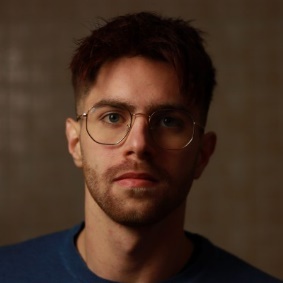 Benedetto Rollo is an undergraduate student at University of Salento. Enrolled in the “Sciences of communication” bachelor’s, his focus is on media studies and sociology. He has developed a strong interest in new medias and in the way political discourses are shaped by online activity.
Benedetto Rollo is an undergraduate student at University of Salento. Enrolled in the “Sciences of communication” bachelor’s, his focus is on media studies and sociology. He has developed a strong interest in new medias and in the way political discourses are shaped by online activity.
FACILITATORS
Andrea Rubino
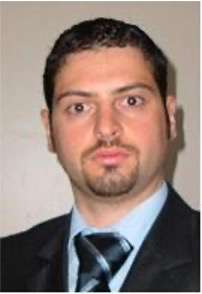 Andrea Rubino studies social animation at the Santa Chiara dei Salesiani oratory in Palermo, where he volunteers from 2003 to 2007 with children with various difficulties.
Andrea Rubino studies social animation at the Santa Chiara dei Salesiani oratory in Palermo, where he volunteers from 2003 to 2007 with children with various difficulties.
In 2005, as a volunteer for the Italian Leukemia Association of Palermo, he held the course for volunteers on "grief processing" and the clown therapy operator course. Viviamo In Positivi Palermo. In 2007 he graduated in Philosophy of Knowledge and Communication at the University of Palermo with a thesis in Psychology.
Since 2008 he has trained as a trainer of sailing therapy operators at the Mercantile Academy of Genoa.
He works as a sailing therapy operator for Handarpermare Onlus and becomes president of Marine Life Conservation. In 2009, creator and president of the Ipazia association aimed at avoiding violence and helping the weakest, he trained as a helpline and psychological support operator. Since 2010 he has been the creator and manager of the international humanitarian missions of Clowntherapy Mikhailovka in Moldova, Terabithia in Albania, Il Ponte in Bolivia and at the Moscow orphanage in Russia.
In 2014 he was recognized as a clown doctor by qualifications by the Italian Red Cross and became a clown therapy trainer for the Sprofondo Imperia Onlus Group and head of clown therapy at Anffas Imperia.
From 2009 to 2023 he trained as a Trainer for the Erasmus Plus projects of the European Commission, becoming Facilitator and Trainer in over 30 projects in various European countries, Armenia and Morocco. In 2015 he became manager and clown therapy teacher of the EU Commission project Path to Empathy in Tenerife.
In 2015 he trained as a travel leader for disabled children for Go Sprout of New York, carrying out the role in various American countries, becoming manager and instructor of the Imperia basketball, sailing, darts, bowling and gentle gymnastics teams for disabled people.
In 2016 he held the position of Clown Therapy teacher for the Red Cross in Trentino Alto Adige.
Since 2011 he has been a teacher at the International School of Clown and Clown Therapy of Naukleros Onlus.
In 2023 he received the Goodness Award from the Lettera d'Amore Foundation with the motivation that with clown therapy and other initiatives he is close to the children of the orphanage and those who are sick: "for his talent, his goodness, which he spreads around around him, especially among children, so that life can smile at them.
Elisabetta Marzo
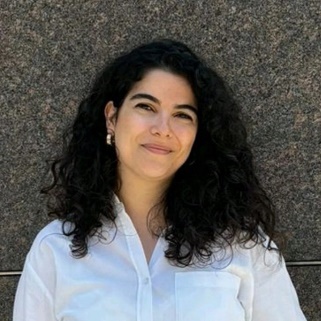 Elisabetta Marzo is a PhD Candidate in “Law and Sustainability” at the University of Salento in Lecce, where she collaborates with the International Law Chair. She currently holds a Research Fellowship at the Law Faculty of the University of Salento, in data protection and privacy law. She has been a Junior Visiting Fellow at the Law Faculty of Columbia University and Columbia Center on Sustainable Investments (New York) and at the Max Planck Institute for Comparative and International Law (Heidelberg). Elisabetta previously obtained the license to practice as a lawyer and completed a training at the Criminal Court of Lecce. She holds a Master’s degree in Law from University of Salento and a degree from ISUFI Higher Institute of Interdisciplinary Advanced Studies. Her main research interests are the interactions between International Investment Law, International Environmental law and Human Rights Law; the topics of territorial sovereignty and sovereignty over natural resources, the phenomenon of land and natural resources grabbing and the rights of local communities.
Elisabetta Marzo is a PhD Candidate in “Law and Sustainability” at the University of Salento in Lecce, where she collaborates with the International Law Chair. She currently holds a Research Fellowship at the Law Faculty of the University of Salento, in data protection and privacy law. She has been a Junior Visiting Fellow at the Law Faculty of Columbia University and Columbia Center on Sustainable Investments (New York) and at the Max Planck Institute for Comparative and International Law (Heidelberg). Elisabetta previously obtained the license to practice as a lawyer and completed a training at the Criminal Court of Lecce. She holds a Master’s degree in Law from University of Salento and a degree from ISUFI Higher Institute of Interdisciplinary Advanced Studies. Her main research interests are the interactions between International Investment Law, International Environmental law and Human Rights Law; the topics of territorial sovereignty and sovereignty over natural resources, the phenomenon of land and natural resources grabbing and the rights of local communities.
Jacopo Lillo
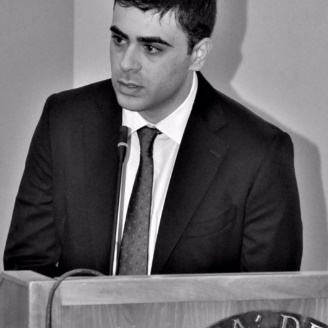 Graduated in law with a thesis focused on conditionality mechanisms in the framework of EU development cooperation policies, he is currently enrolled in the second year of the PhD programme on ‘Rights and Sustainability’ at the University of Salento with the European Union Law Chair. His current research primarily focuses on the social dimension of sustainability within the corporate world, exploring how EU legal frameworks can foster responsible business practices. Committed to advancing sustainable development through legal research, Jacopo aims to contribute to the ongoing dialogue on the role of law in promoting social and environmental responsibility.
Graduated in law with a thesis focused on conditionality mechanisms in the framework of EU development cooperation policies, he is currently enrolled in the second year of the PhD programme on ‘Rights and Sustainability’ at the University of Salento with the European Union Law Chair. His current research primarily focuses on the social dimension of sustainability within the corporate world, exploring how EU legal frameworks can foster responsible business practices. Committed to advancing sustainable development through legal research, Jacopo aims to contribute to the ongoing dialogue on the role of law in promoting social and environmental responsibility.
Fabiana Magnolo
 Graduated in Law discussing a thesis focused on analyzing the regulatory and judicial processes that lead to the realization of a triple dimension of an actual human right to the environment at the international level (i. e. emphasizing the role of individuals taken into an individual perspective or into a collective one or as part of a given community), she is currently Phd student, at first year, in International law at the University of Salento. Her research, included into the programme on ‘Rights and Sustainability’, aims at studying the REDD+ (Reduction of emissions from deforestation and forest degradation) tool, designed to fight climate change, with respect to the pursuit of another international environmental protection objective, namely the protection of ecosystems and biodiversity. In particular, her purpose is to verify the role that human rights and, more specifically, biocultural rights and RES (Rights for ecosystem services) can play as legal instruments that could be functional in integrating REDD+ with the protection of biological diversity. She is ISUFI (Advanced University Institute of Interdisciplinary Training) Alumna, in Law-Economy area.
Graduated in Law discussing a thesis focused on analyzing the regulatory and judicial processes that lead to the realization of a triple dimension of an actual human right to the environment at the international level (i. e. emphasizing the role of individuals taken into an individual perspective or into a collective one or as part of a given community), she is currently Phd student, at first year, in International law at the University of Salento. Her research, included into the programme on ‘Rights and Sustainability’, aims at studying the REDD+ (Reduction of emissions from deforestation and forest degradation) tool, designed to fight climate change, with respect to the pursuit of another international environmental protection objective, namely the protection of ecosystems and biodiversity. In particular, her purpose is to verify the role that human rights and, more specifically, biocultural rights and RES (Rights for ecosystem services) can play as legal instruments that could be functional in integrating REDD+ with the protection of biological diversity. She is ISUFI (Advanced University Institute of Interdisciplinary Training) Alumna, in Law-Economy area.
Francesco Spera
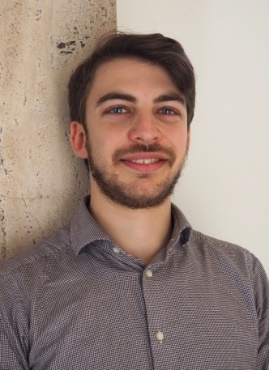 Francesco Spera is a PhD candidate in European Law and External Relations of the EU. Francesco has previously worked for European institutions in Bruxelles and Italian national public bodies in the field of EU cohesion fund, EU budget, regional decision making involvement. Francesco hold a LLM in EU Law at Maastricht University and 2 honorary Masters in Academic research and History. His main fields of research are EU external relations law, defense law, Energy law and migration. Visiting Researcher at the Centre for Europe, and Institute Guest researcher at the Max Planck Institute for Comparative Public Law and International law
Francesco Spera is a PhD candidate in European Law and External Relations of the EU. Francesco has previously worked for European institutions in Bruxelles and Italian national public bodies in the field of EU cohesion fund, EU budget, regional decision making involvement. Francesco hold a LLM in EU Law at Maastricht University and 2 honorary Masters in Academic research and History. His main fields of research are EU external relations law, defense law, Energy law and migration. Visiting Researcher at the Centre for Europe, and Institute Guest researcher at the Max Planck Institute for Comparative Public Law and International law
Polina Zavershinskaia
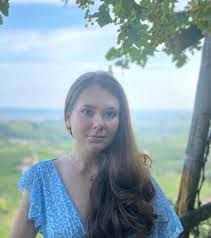 Polina Zavershinskaia is a doctoral researcher at the Institute for Political Science, Leipzig University, a fellow of the Far-Right Analysis Network (FRAN) and a research investigator of Mapping the Far-Right Truth Industry (MAFTI) international research group. In her research, she examines how right-wing nationalists manipulate national memory to sacralize violence in Russian and German societies. Together with her co-author Beatriz Buarque, she has recently contributed to the volume Populism and Far-Right: Trends in Europe edited by Valerio Alfonso Bruno. She was also recently published in the American Journal of Cultural Sociology.
Polina Zavershinskaia is a doctoral researcher at the Institute for Political Science, Leipzig University, a fellow of the Far-Right Analysis Network (FRAN) and a research investigator of Mapping the Far-Right Truth Industry (MAFTI) international research group. In her research, she examines how right-wing nationalists manipulate national memory to sacralize violence in Russian and German societies. Together with her co-author Beatriz Buarque, she has recently contributed to the volume Populism and Far-Right: Trends in Europe edited by Valerio Alfonso Bruno. She was also recently published in the American Journal of Cultural Sociology.
Laurids Hempel
 Laurids Hempel is a Doctoral candidate and Research Fellow in the ENSURE research group at the Max Planck Institute for Comparative Public Law and International Law in Heidelberg. His research focuses on the European response to foreign interference in democratic processes. Laurids Hempel studied law at the University of Heidelberg, including two semesters abroad at the University of Montpellier. He focused on studies in international public law, EU law and constitutional law.
Laurids Hempel is a Doctoral candidate and Research Fellow in the ENSURE research group at the Max Planck Institute for Comparative Public Law and International Law in Heidelberg. His research focuses on the European response to foreign interference in democratic processes. Laurids Hempel studied law at the University of Heidelberg, including two semesters abroad at the University of Montpellier. He focused on studies in international public law, EU law and constitutional law.
Sérgio Barbosa
Sérgio Barbosa (University of Coimbra, PhD) is a sociologist focusing on digital literacy and AI. He is a postdoctoral researcher at University of Geneva linked to the Institute of Citizenship Studies (InCite). He is also a visiting researcher at BANDAS-center, University of Graz. Barbosa has served as a research fellow at four international research institutions, namely: Center for Advanced Studies (CAS) at LMU, Institute for Human Sciences (IWM), Institute for Advanced Studies on Science, Technology and Society (IAS-STS) at TU Graz, and Center for Advanced Internet Studies (CAIS). His research interests include chat apps, Digital Activism, Digital Literacy, and Global South. His work has been published in leading academic outlets such as the Political Studies Review, Mobile Media & Communication, Westminster Papers in Communication and Culture, and First Monday, among others. His recent work delves into AI literacies as a pedagogical strategy. It develops participatory approaches focusing on the agency of young people to play a multi-disciplinary role for social change at the school level, while creating pedagogical toolboxes in a meaningful, inclusive and mutually beneficial way as a response to global challenges.

